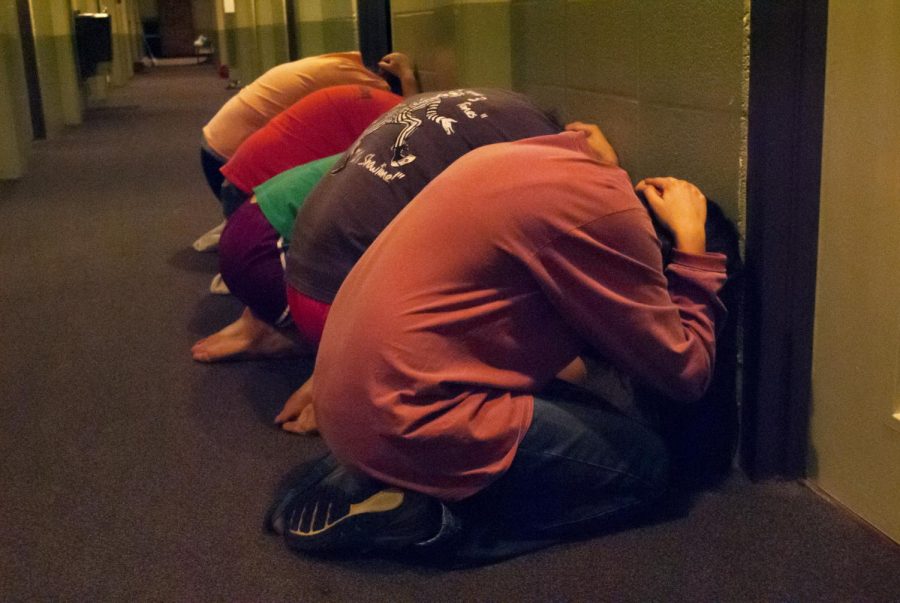Students discuss storm safety tips
February 28, 2013
North Alabama is no stranger to tornadoes. February 17-22 marked Severe Weather Awareness Week for the state.
Leah Pease, Athens State University student, recalls her connection to storms that took her home March 2, 2012.
“I was at the back door of my house with my stepmother and brother, when I saw this big pink and red triangle in the sky,” she said. “I got to the hallway, covered myself with a blanket and heard the metal street lamps outside snapping in half. When I heard all of the windows bust open and the house begin to shake, I slipped my fingers under the door nearest to me and asked myself, ‘What do I do in the last seconds of my life?’”
The tornado decimated Pease’s house and numerous others in New Market, near Buckhorn High School. News reports confirmed that multiple tornadoes were taking the same path and Pease, in her pajamas and shoe-less, felt unprepared.
“I blacked out, but when I came to, I heard my stepmom calling me, and I grabbed her hand as soon as I felt it and she pulled me up,” she said. “We went to my neighbor’s house, who happened to be the sheriff, and got some jackets. We were drenched and kept asking people to take us somewhere safe, but they just told us to get in a house.”
No one in Pease’s family was harmed, and her insurance provided her family with a temporary residence as well as money to begin building a new home.
“If given the chance to do it all over again, the minute I heard there was a high risk, I would have gotten my wallet, my phone and charger, and gone straight to a shelter,” she said. “People need to listen to the meteorologists and officials that really know what they’re talking about.”
MyWARN, a weather advisory app, was created by Bill Murray and Jeff Cross in response to the April 27 tornadoes.
“My son was a student at the University of Alabama,” Murray said on the MyWARN website. “I told him that he would hear the sirens sound for the first storm, but that it would miss him. But the second storm had his name on it. If I had not communicated with him, he says he would not have been in safe shelter despite the sirens. The sirens sound so often that students paid no attention to them.”
The case parallels frequent student complaints about Lion Alerts as well as Residence Life responses to potential storm threats.
“(Alabama) is in a bad trend right now, and things like Lion Alerts can save lives, even if they’re irritating,” Pease said.
Caroline Thomas, a UNA student, said if she were faced with severe weather, she knows it would change her outlook.
“I love storms,” she said. “I get an adrenaline rush when I hear about tornadoes, and I would always put a pillow and blanket in my bathtub when I would hear one could potentially be in the area. But a couple weeks ago when there was a tornado warning for Lauderdale County early in the morning, there was no community adviser. We were dependent on Atticus Wright to knock on our doors — he was our momma. If I were in a devastating storm, though, I would take it more seriously.”
In the Digital Age, apps like My-WARN offer contributions to a safer situation. The website and app come complete with lists such as “having a plan” and what to do “during a tornado watch.”
“There are only two tornado warnings on average per year for any given location even in the heart of tornado alley,” according to the MyWARN website. “So when they are issued for your specific location, take them seriously and act!”
“Storms are not a joke,” Pease said. “You don’t understand — you can’t, you won’t, until it happens to you.”











